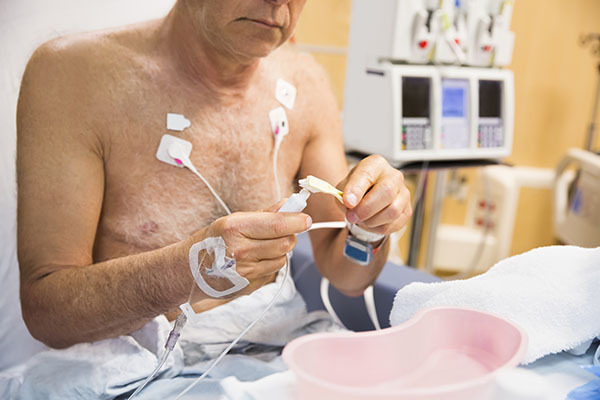
HOSPITAL REPORT
The premier resource for hospital professionals from Relias Media, the trusted source for healthcare information and continuing education.
Study: Toothbrushing Can Prevent Hospital-Acquired Pneumonia
December 20th, 2023

By Jill Drachenberg, Editor, Relias Media
Researchers found that a simple oral care regimen of brushing patients’ teeth twice per day could prevent hospital-acquired pneumonia (HAP) and ventilator-associated pneumonia (VAP).
HAP and VAP are among the most common healthcare-associated infections. Evidence suggests these infections are caused by patients breathing microbes from their mouths. The researchers noted that many care bundles for mechanical ventilation include oral chlorhexidine, but there is little evidence to suggest it works — and it might be associated with higher mortality rates.
“Rigorous, regular toothbrushing is an alternative strategy to decrease microbial burden in the mouth without the potential risk associated with oral chlorhexidine,” the researchers noted. “Indeed, toothbrushing may be more effective than antiseptics at reducing microbial burden since mechanical scrubbing may better disrupt plaque and other biofilms compared with antiseptics.”
To find out if toothbrushing reduced rates of HAP and VAP, researchers analyzed 15 randomized, controlled studies including 2,700 patients. Across all studies, patients randomized to the toothbrushing arm had significantly lower rates of HAP, lower mortality rates, shorter lengths of ICU stay, and less time on mechanical ventilation. Antibiotic use did not make a significant difference.
There is no one clear oral care route for patients on mechanical ventilation, the researchers noted. Simply brushing patients’ teeth twice per day can greatly reduce these serious hospital-acquired infections.
“These findings suggest that routine toothbrushing should be considered an essential component of standard care in hospitalized patients, particularly in patients receiving invasive mechanical ventilation, for whom the evidence is strongest, to prevent pneumonia and lower mortality rates,” the researchers concluded.
